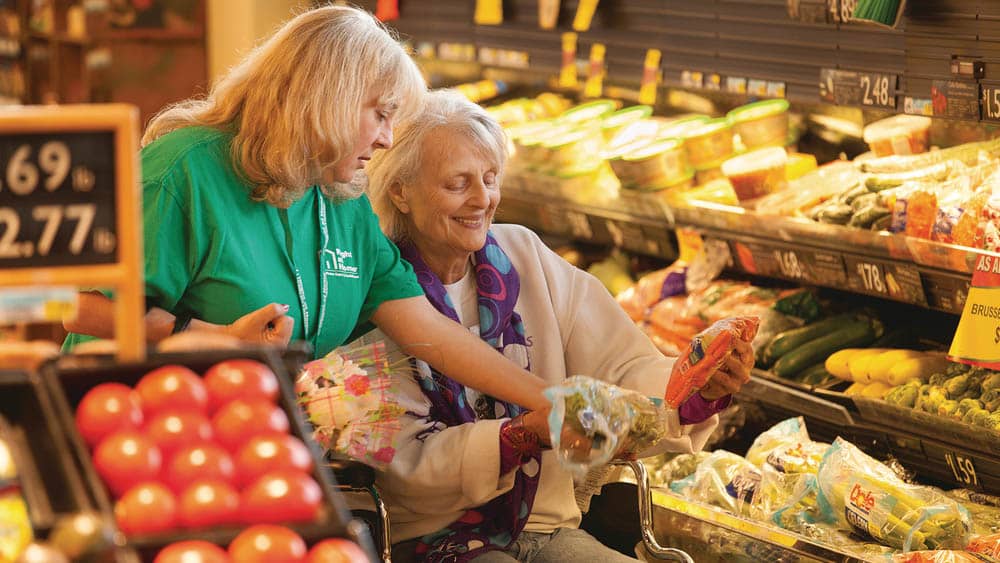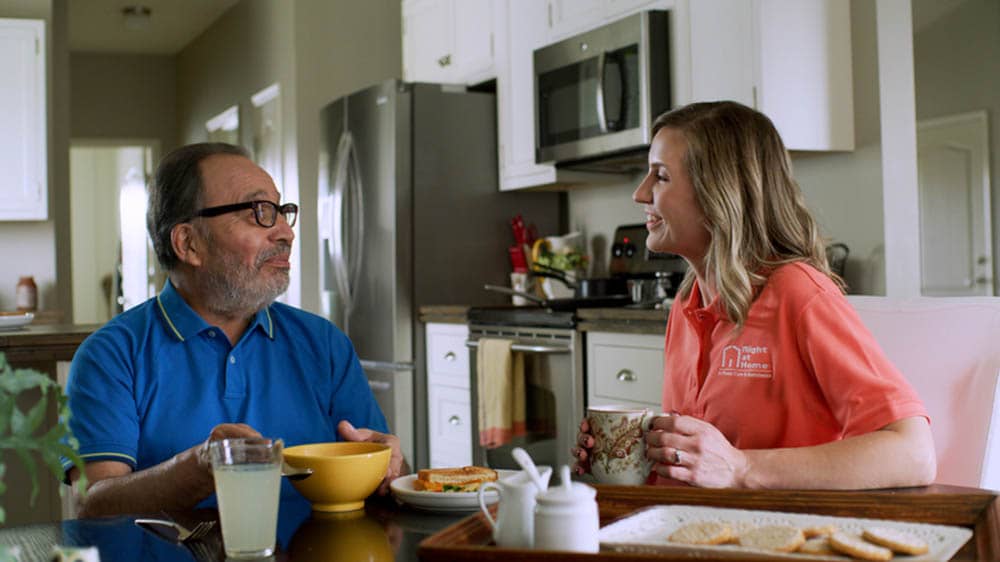

Good Nutrition Helps Older Adults Combat Cognitive Decline, Alzheimer’s and Dementia
Our bodies and minds undergo various changes as we age, making proper nutrition increasingly vital. This is especially true for older adults looking to protect against cognitive decline and dementia, including Alzheimer’s. But what specific expert suggestions should seniors be paying attention to?
A Nutritional Guide for Aging Adults
“Nutrition plays an important role in helping to prevent further cognitive decline,” says Shannon Mewes, a registered dietician and licensed dietitian nutritionist. “What we eat makes such an impact on every part of our bodies.”
Mewes recommends the MIND diet, which is gaining attention for its positive impact on brain health. She also emphasizes a crucial nonfood element of nourishing our bodies: staying hydrated.
The MIND Diet: A Blend for Brain Health
MIND is short for Mediterranean-DASH intervention for neurodegenerative delay. This way of eating combines elements of the Mediterranean and DASH (dietary approaches to stop hypertension) diets. Both diets are renowned for their heart-healthy benefits, but the MIND diet tailors these principles specifically to brain health.
Key Components of the MIND Diet
- Leafy green vegetables. Kale, spinach and other greens are rich in vitamins and nutrients, like vitamin E and folate, which are crucial for brain function.
- Berries. Blueberries and strawberries, in particular, have been shown to improve cognitive function and delay age-related decline.
- Nuts and seeds. These provide healthy fats, antioxidants and vitamin E, which protect brain cells from oxidative stress.
- Whole grains. Foods like oatmeal, brown rice and whole-grain bread provide essential fiber and reduce the risk of heart disease.
- Fish and poultry. Consuming lean poultry and fish, particularly fatty ones like tuna and salmon, helps reduce the intake of red meat, which is higher in saturated fat.
Avoid or Limit
This diet doesn’t require strict adherence to see benefits. Even moderate adherence has been linked to a slower rate of cognitive decline and a reduced risk of developing Alzheimer’s disease. At the same time, it’s best to avoid:
- Red meat
- Butter and stick margarine
- Cheese and other high-fat dairy
- Pastries and sweets
- Fried or fast food
Mewes notes that it’s OK to “allow yourself some small, reasonable treats each week if you need to.”
The Importance of Hydration
“When we think about nutrition for older adults, we don’t often think of hydration,” says Mewes. But hydration is crucial to everyone’s overall health, especially older adults. Aging causes the loss of muscle mass, and then “it’s harder to stay hydrated because muscle mass holds water,” she explains.
Dehydration can lead to confusion, drowsiness, memory loss and other symptoms that may mimic or exacerbate cognitive decline.
Hydration Tips
- Aim for 8-10 glasses of water daily. This can vary depending on body size, activity level and climate.
- Incorporate hydrating foods. Vegetables and fruits like cucumbers, oranges and watermelon can boost fluid intake.
- Limit caffeine and alcohol. These can lead to dehydration.
- Create a routine. Setting regular times to drink water can help maintain hydration throughout the day.
Make Your Health a Priority
Adopting the MIND diet and staying adequately hydrated can significantly impact the health and functioning of the brain in older adults. It’s not hard to get started. “Make small changes,” advises Mewes. “Pick one goal each week to incorporate, then build from there. Make your health a priority.”
Always consult with a health care provider before making significant dietary changes, especially if you have existing health conditions or are on medication.
How Right at Home Can Help
Right at Home’s professionally trained caregivers can help older adults shop for groceries, prepare healthy meals, and incorporate dietary recommendations from health professionals. We follow a five-step process to ensure you get the care you need and the right person to help. Use our office locator to find your local Right at Home office and ask for a FREE in-home consultation.
Interested in receiving tips and advice related to the aging journey? Subscribe to our monthly Caring Right at Home e-newsletter today.







